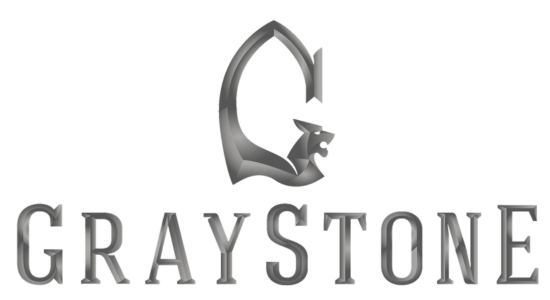In the dynamic landscape of business ownership, safeguarding your venture against unforeseen risks and liabilities is paramount. One essential tool in your risk management arsenal is a Business Owner’s Policy (BOP). This comprehensive insurance package is designed to provide small to mid-sized businesses with a tailored combination of coverage to protect against various perils. Understanding the intricacies of a BOP and how to acquire one can be instrumental in ensuring the longevity and success of your enterprise. Join us as we delve into the essentials of Understanding and Acquiring a Business Owner’s Policy (BOP).
Connect with us today to get your coverage and protect your business!
Understanding the Need for a Business Owner’s Policy

Starting and running a business is an exciting endeavor, but it comes with inherent risks. From property damage to liability claims and unexpected events, the potential threats to your business can be overwhelming. This is where a Business Owner’s Policy (BOP) becomes essential.
A BOP is a comprehensive insurance package designed specifically for small to mid-sized businesses. It combines various types of coverage into a single policy, providing a convenient and cost-effective solution for protecting your business.
The need for a BOP arises from the unpredictable nature of business operations. Whether you own a retail store, a restaurant, or a consultancy firm, your business is exposed to a range of risks. These risks can include property damage due to fire, theft, or natural disasters, liability claims from customers or employees, and even business interruption due to unforeseen events.
Without proper insurance coverage, these risks could have a devastating impact on your business. The financial burden of repairing or replacing damaged property, covering legal expenses, or compensating third parties for injuries can be overwhelming and potentially lead to the closure of your business.
A BOP provides a comprehensive solution by bundling several essential coverages into a single policy. By understanding the need for a BOP, you can ensure that your business is adequately protected against potential risks, providing you with peace of mind and allowing you to focus on growing your business.
In the following sections, we will explore in detail what a Business Owner’s Policy entails, its key components, and the specific coverage it provides. We will also discuss why your business needs a BOP and how to acquire one that suits your unique requirements. So let’s dive in and gain a comprehensive understanding of Understanding and Acquiring a Business Owner’s Policy (BOP).
What is a Business Owner’s Policy?
A Business Owner’s Policy (BOP) is a specially designed insurance package that combines different types of coverage to meet the specific needs of small to mid-sized businesses. It provides a comprehensive solution by bundling property insurance, liability insurance, and often additional coverages into a single policy.
A BOP is created with the aim of simplifying the insurance process for business owners. Instead of purchasing separate policies for each type of coverage, a BOP offers a convenient and cost-effective option to obtain multiple coverages under one umbrella policy. This not only streamlines the insurance management process but also helps businesses save time and money.
To fully grasp the concept of a BOP, it is important to understand its key components and the specific coverage it provides. Let’s dive into the details:
BOP Definition and Basic Understanding
A Business Owner’s Policy is a type of insurance policy designed specifically for small to mid-sized businesses. It combines essential coverages into a single package, offering a comprehensive solution to protect against a range of risks.
Key Components of a BOP
A BOP typically includes three main components:
-
Property Insurance:This component provides coverage for your business property, including buildings, equipment, inventory, and other physical assets. It protects against perils such as fire, theft, vandalism, and certain natural disasters.
-
Liability Insurance:Liability coverage protects your business against claims of bodily injury or property damage caused to third parties. It includes coverage for legal defense costs and potential settlements or judgments.
-
Additional Coverages:Depending on the insurance provider and the specific needs of your business, a BOP may also include additional coverages such as business interruption insurance, which provides financial protection in case your business operations are interrupted due to a covered event, and equipment breakdown coverage, which covers the cost of repairing or replacing vital equipment if it breaks down.


What Does a BOP Cover?
A BOP typically covers a wide range of risks and perils. The specific coverage will depend on the insurance policy and the options chosen by the business owner. Some common coverage areas include:
Things to Consider
Industry Risks
– Property damage caused by fire, theft, vandalism, or certain natural disasters.
– Liability claims arising from accidents or injuries that occur on your business premises.
– Product liability claims if a product you sell causes harm or injury to a customer.
– Legal defense costs associated with liability claims.
– Business interruption coverage for lost income and ongoing expenses during a covered event that forces your business to temporarily close or reduces its operations.
– Coverage for the cost of repairing or replacing damaged equipment due to breakdown.
Understanding the components and coverage of a Business Owner’s Policy is crucial for business owners who want to protect their assets, minimize financial risks, and ensure the continuity of their operations. In the next section, we will explore the reasons why your business needs a BOP.
Why Your Business Needs a Business Owner’s Policy

Running a business involves inherent risks and uncertainties. From property damage to accidents, lawsuits, or unexpected events, your business can be exposed to a wide range of potential risks. This is why having a Business Owner’s Policy (BOP) is crucial. Let’s explore the reasons why your business needs a BOP:
Protection Against Potential Risks
One of the primary reasons your business needs a BOP is to protect it against potential risks. Whether you operate in a physical location or online, there are various risks that can threaten your business’s financial stability. A BOP provides coverage for property damage, such as fire, theft, or natural disasters, ensuring that you can recover and get back on your feet in case of an unfortunate event. Additionally, it offers liability coverage, protecting your business against claims of bodily injury or property damage caused by your products, services, or business operations. This coverage can be invaluable in safeguarding your business’s assets and reputation.
Financial Stability & Peace of Mind
By obtaining a BOP, you gain financial stability and peace of mind. The financial consequences of property damage, lawsuits, or other unexpected events can be overwhelming for a business, especially small to mid-sized ones that may not have significant financial reserves. A BOP provides a safety net, ensuring that your business can weather the storm and continue its operations even in challenging times. It allows you to focus on growing your business without the constant worry of potential financial ruin.
Legal Requirement in Certain Cases
Depending on the nature of your business and your location, having a BOP may be a legal requirement. Certain industries or professions may require businesses to carry specific types of insurance coverage to comply with legal regulations. For example, if you have employees, workers’ compensation insurance may be mandatory. By obtaining a BOP, you can ensure that you meet the legal obligations, avoiding potential penalties or legal issues that could arise from non-compliance.
Enhancing Business Credibility
Having a Business Owner’s Policy can also enhance your business’s credibility and reputation. It demonstrates to your clients, customers, and partners that you take risk management seriously and are committed to protecting their interests. In many cases, clients may require proof of insurance before entering into contracts or agreements, and having a BOP can give you a competitive edge in the marketplace.
Tailored Coverage for Your Business
A significant advantage of a BOP is that it can be customized to meet the specific needs of your business. Insurance providers understand that different industries and businesses have unique risks and requirements. They can work with you to tailor the policy to include coverages that are most relevant to your business operations. This ensures that you are not overpaying for unnecessary coverage while ensuring that you have adequate protection against the specific risks your business faces.
In conclusion, a Business Owner’s Policy is essential for your business’s long-term success and stability. It provides comprehensive coverage against potential risks, offers financial stability and peace of mind, meets legal requirements, enhances your business’s credibility, and can be customized to meet your specific needs. In the next section, we will dive into the process of acquiring a Business Owner’s Policy, starting with identifying the right insurance provider.
How GrayStone Insurance Helps You Acquire a Business Owner’s Policy
Acquiring a Business Owner’s Policy (BOP) involves a series of steps to ensure that you find the right insurance provider and obtain coverage that suits your business’s specific needs.
We Start With Understanding Your Business Needs
It’s crucial to have a clear understanding of your business’s specific needs. Assess the risks and liabilities that your business faces, taking into account factors such as your industry, location, size, and operations. Consider the value of your assets, the type of property you own or lease, the number of employees you have, and the nature of your products or services. This information will help us determine the specific coverages and policy limits that are appropriate for your business.
Working with an Insurance Professional
Managing and updating your BOP can be complex, especially as your business evolves and faces new challenges. Consider working with an insurance professional or broker who can provide expert advice and guidance. We can help you navigate the insurance market, assess your coverage needs, and ensure that you have the right BOP in place. GrayStone can also assist you with policy reviews, claims management, and keeping up-to-date with any regulatory changes or industry-specific requirements.
By actively managing and updating your Business Owner’s Policy, you can ensure that your business remains adequately protected against potential risks and liabilities. Regular reviews, understanding the claims process, renewing on time, and ongoing risk management are crucial aspects of maintaining a comprehensive and effective insurance coverage. Stay proactive and seek professional advice when needed to optimize the protection provided by your BOP.
In conclusion, acquiring a BOP is just the beginning of safeguarding your business. By actively managing and updating your policy, you can adapt to changing circumstances, minimize potential gaps in coverage, and maintain the necessary level of protection for your business’s long-term success.
